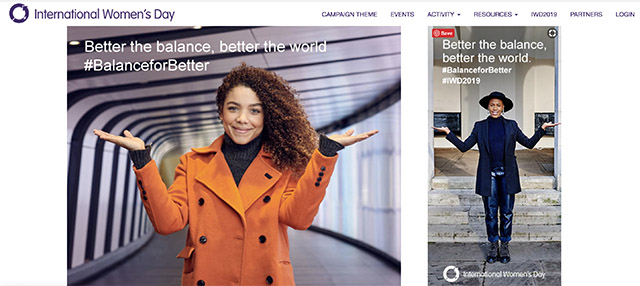The 2019 #BalanceforBetter campaign runs all year long. It doesn’t end on International Women’s Day.
The campaign theme provides a unified direction to guide and galvanize continuous collective action, with #BalanceforBetter activity reinforced and amplified all year.
Balance drives a better working world. Let’s all help create a #BalanceforBetter
How does one create a gender-balanced world?
Balance is not a women’s issue, it’s a business issue. The race is on for the gender-balanced boardroom, a gender-balanced government, gender-balanced media coverage, a gender-balance of employees, more gender-balance in wealth, gender-balanced sports coverage …
Gender balance is essential for economies and communities to thrive.
The average gender gap in ASEAN labor force is at 19 percent which reflects a gap in labor force participation “between man and women as well as inadequate and unequal access of women to economic opportunities and work conditions favorable to woman.”
Fewer women than men are present in the ASEAN labor market. It will take many years before balance is achieved even in our ASEAN region. These challenges have to be hurdled first. Some of these challenges are as follows:
1.The female labour force participation rate is persistently lower across all ASEAN countries.
2. Persistent gender skill gap and gender wage gap. More women are employed in lower skilled and lower paying jobs than men, resulting in a persistent and high gender wage gap
3. The majority of women are employed in vulnerable jobs with limited access to benefits and social protection.
4. Gender gaps in education have been declining but educational attainment of women continues to lag behind that of men.
5. Large numbers of highly-educated women remain unemployed.
Institutional barriers
6. Continued presence of gender discriminatory customary laws in certain ASEAN countries. All ASEAN countries provide constitutional equality between men and women.
7. Limited effectiveness of gender mainstreaming.
8. Due to cultural norms women are disadvantaged in acquiring land and assets and this is mirrored in discriminatory laws.
9. Women contribute substantially to economic welfare through large amounts of unpaid work, such as child-rearing and household tasks, which often remains unseen and unaccounted for in national income
10. Lack of clarity in key labour laws relating to equal remuneration, discrimination and maternity benefits contributes to women’s relative weaker position in the labour market.
While these challenges are work in action, I can do my part in helping close the digital divide between the digitally skilled and unskilled women. There are many opportunities for women in technology. The ASEAN ICT Masterplan of 2020 , ” brings ASEAN towards a digitally enabled economy and women should prepare themselves with the knowledge to work at home.
